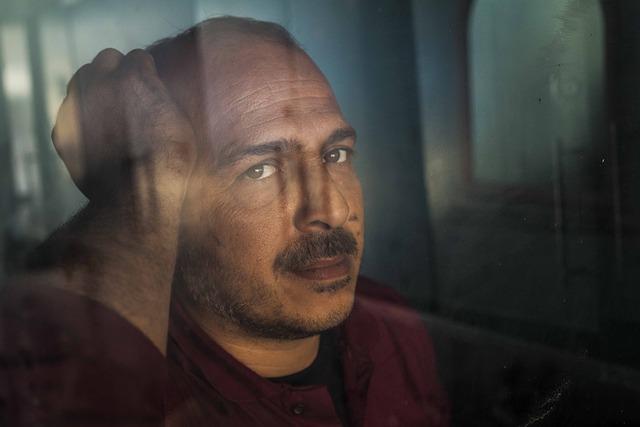In recent years, the rise of private tutoring has become a hallmark of educational strategy among affluent families, ostensibly aimed at securing academic excellence and competitive advantages for their children. However, beneath the surface of this burgeoning industry lies a complex web of unintended consequences that merit closer examination. This article delves into the paradoxical role that private tutors play in the lives of privileged students, scrutinizing how the relentless pursuit of academic superiority can inadvertently amplify pressure and stress. By dissecting the dynamics at play, we aim to unravel the intricate balance between striving for scholastic achievement and preserving the well-being of young learners in today’s hyper-competitive educational landscape. Through an analytical lens, we will explore how the very tools intended to bolster academic success may, in fact, contribute to an escalating cycle of anxiety and expectation among affluent youth.
The Hidden Burden of Success Understanding the Complex Impact of Private Tutoring on Affluent Youth
The intricate web of private tutoring has woven itself into the fabric of affluent communities, promising to bolster academic performance and secure future success. However, beneath this glittering promise lies an often-overlooked reality: the mounting pressure it places on young learners. As private tutors aim to supplement school education, they inadvertently create a parallel academic universe where the stakes are higher, and the expectations even more stringent. This relentless pursuit of excellence can lead to an unsustainable lifestyle where students are caught in a cycle of continuous performance, leaving little room for rest or personal growth.
- Increased Stress: The constant demand for higher grades and top-tier university placements can lead to anxiety and burnout.
- Reduced Leisure Time: With evenings and weekends consumed by additional lessons, students often miss out on essential downtime and social interactions.
- Distorted Self-Worth: Academic achievements become the sole measure of success, overshadowing other talents and interests.
While private tutoring can indeed open doors to prestigious academic opportunities, it is crucial to recognize its complex implications on the mental and emotional well-being of affluent youth. Balancing ambition with well-being should be at the forefront of educational strategies, ensuring that the path to success does not become a burden too heavy to bear.

Decoding Academic Anxiety Unveiling the Psychological Toll of High Expectations in Wealthy Households
The pursuit of academic excellence in affluent households often transforms into a high-stakes game, where private tutors become both allies and adversaries. While they are employed to unlock a child’s full potential, these tutors inadvertently contribute to the mounting pressure that children face. The relentless focus on achieving top grades can lead to an environment where mistakes are feared, rather than viewed as learning opportunities. This fear of failure is compounded by the high expectations set by both tutors and parents, creating a psychological burden that can be overwhelming.
- Constant Comparisons: Affluent children are frequently measured against their peers, leading to feelings of inadequacy if they fall short.
- Lack of Downtime: The rigorous schedules often leave little room for relaxation or creative exploration, essential components for mental well-being.
- Parental Pressure: Parents may unintentionally project their aspirations onto their children, adding to the stress.
- Identity Crisis: Overemphasis on academic success can cause children to equate their self-worth with their grades.
In this environment, it becomes crucial to strike a balance between nurturing academic skills and preserving mental health. Recognizing the nuanced role that private tutors play is a step toward alleviating the undue stress experienced by many children in affluent settings.

Strategic Approaches to Balance Crafting a Holistic Educational Experience Beyond Private Tutoring
To effectively balance the demands of private tutoring with a comprehensive educational experience, it is crucial to adopt strategic approaches that foster a well-rounded development for affluent children. One key strategy is to integrate experiential learning opportunities into the child’s schedule. This can include activities such as:
- Community service projects
- Arts and cultural programs
- Outdoor adventures and nature exploration
- Participation in team sports
Such activities not only cultivate a child’s social and emotional intelligence but also provide practical skills that cannot be gleaned from textbooks alone. Additionally, establishing a balanced routine that includes downtime is essential. Encouraging children to pursue hobbies or simply engage in unstructured play can alleviate the intense academic pressure often exacerbated by constant tutoring. This holistic approach ensures that education is not merely about academic success but also about nurturing a child’s overall well-being and personal growth.

Empowering Students with Choice Fostering Independent Learning and Reducing External Academic Pressures
In the quest to enhance academic achievement, the introduction of private tutors often seems like a beneficial solution. However, it inadvertently shifts the focus from independent learning to an external dependency. By providing students with more choice in their educational journey, we can cultivate an environment where they learn to take ownership of their education. This empowerment fosters a sense of responsibility and confidence, encouraging them to explore subjects at their own pace and develop critical thinking skills.
Moreover, the reliance on private tutors can exacerbate academic pressures, especially among affluent children. When students are given the autonomy to make decisions about their learning, they can experience a range of benefits:
- Increased Motivation: Students become more engaged when they can choose topics that genuinely interest them.
- Enhanced Problem-Solving Skills: Facing challenges without immediate external assistance promotes resilience and innovation.
- Reduced Anxiety: The freedom to learn without constant scrutiny can alleviate stress and encourage a healthier relationship with education.
By shifting the focus from external validation to intrinsic motivation, we can help students develop a lifelong love for learning, ultimately reducing the need for excessive tutoring and its associated pressures.



